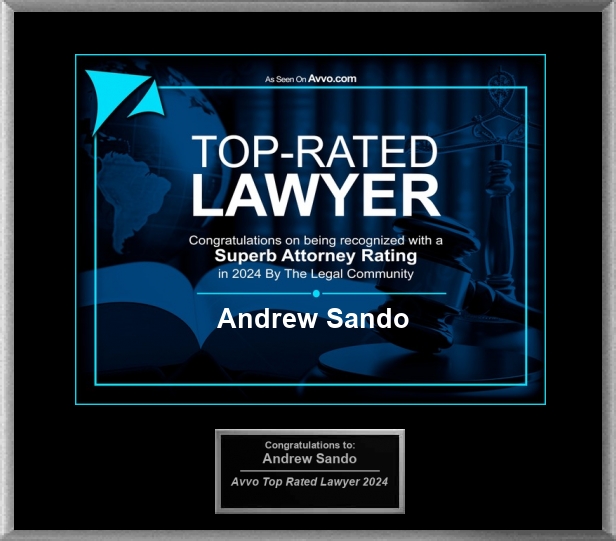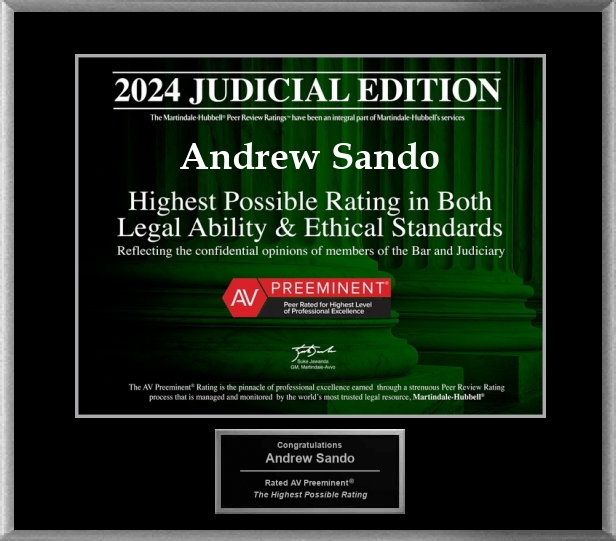Probation is a sentencing option to avoid incarceration or shorten the time behind bars. However, probation extends the reach of the state into all aspects of your life. Negotiating the terms of probation to avoid prison time or to shorten the sentence requires criminal defense counsel with a full understanding of all the players within the criminal process—including police and investigators, prosecutors, judges, and probation officers.
When your liberty is in jeopardy, having an experienced and skilled attorney working for you can make a difference in your sentence and help eliminate further constraints on your life. That’s why Sando Law, P.A., with offices in Palm Beach and expertise throughout the South Florida region, is available to review your case file for free to help you decide which criminal defense attorney to hire to protect your rights and liberty.
What Is Probation?
Understanding the specifics of your probation restrictions is essential to maintaining your freedom outside of prison. No one wants to be rearrested for a probation violation. Probation falls into five possible categories depending on the severity of the underlying criminal offense:
- Administrative Probation: A convicted person who does not pose a significant danger to community members can be sentenced to administrative probation, which usually does not require contact with the Probation Office or regular reporting. Once one-half of probation has been completed successfully, convicted felons can have the rest of their probation converted from a more restrictive to administrative probation, readying them for return to fully independent living.
- Community Control: A convicted person is placed in a community or residential institution that maintains strict rules to constrain behaviors. Community control includes legal surveillance and demanding rules to prevent a return to felonious activities and associations.
- Drug Offender Probation: A convicted person with a history of drug offenses is required to comply with a detailed rehabilitation plan that is overseen by a probation officer. That probation officer is limited to only 50 cases to supervise.
- Mental Health Probation: A convicted person with mental health issues can be subjected to mandatory mental health treatment, medication (including psychotropic drugs), and supervision.
- Sex Offender Probation: A convicted sex offender can be sentenced to probation that includes electronic monitoring, mandatory treatment, and testing, including polygraph tests.
What is a Probation Violation?
The terms of probation can be complex and complicated, individualized to each convicted felon. These terms might include mandatory reporting to a probation officer, a curfew, restrictions on travel, mandatory work assignments, completion of an alcohol or drug treatment program, continuous sobriety, and limitations in your right to socialize with certain people who are seen as bad influences. These terms might include giving permission to the probation officer to visit you in your home, paying fines and restitution, paying any debts to a medical or detention facility, and submitting to frequent, random drug and alcohol testing.
The constraints placed on a convicted felon are purposefully confining. Violating the terms of probation can be unintentional or intentional. No matter what, a probation or police officer can arrest the offender without an arrest warrant. Or a probation or police officer can go to court and request an arrest and/or search warrant.
Probation violations are classified as technical or substantive.
- Technical Violation typically means you have violated a term of probation that does not rise to the level of committing a crime. You might have missed a curfew or canceled a visit with your probation officer. You might have been unable to pay child support or skipped a drug treatment session.
- Substantive Violation typically means that you have committed another crime, warranting arrest and prosecution.
Is Violation of Probation a Felony or Misdemeanor?
Violation of probation itself would not result in a new felony or misdemeanor charge unless the violation of probation was substantive, meaning you committed another crime, for which you will be separately charged. However, litigating a violation of probation does not offer the same rights to you. For instance, when defending against a violation of probation, you do not have these rights:
- A presumption of innocence
- A right to a release bond
- A right to a jury trial
- Excluding hearsay evidence
- Fifth Amendment right against self-incrimination
- The legal standard is preponderance of the evidence, not beyond a reasonable doubt
The consequences of finding a probation violation are also serious. Depending on a variety of factors—the underlying crime, the nature of the probation violation, and whether there are previous violations—the judge can order:
- Continuing probation
- Continuing probation with additional conditions and constraints
- Imposing a more restrictive form of probation
- Ordering a jail sentence of up to 90 days
- Sentencing the probation offender for the original crime
How Does Violation of Probation Work in Florida?
Whether rearrested with or without a warrant, when accused of a probation violation, you might not be entitled to bond but can be held in custody under many circumstances. Your probation officer will submit an Affidavit of Violation to the court. This sworn statement will detail the offending activities or failure to comply with the terms of probation. If the initial offense was a felony, then a Department of Corrections Violation Report will also be submitted to the court.
Remember, you do not have a right to a jury trial. Instead, the judge will review the allegations and determine whether you violated the terms of probation and whether that violation was intentional or unintentional. Although you are entitled to a hearing and representation by counsel, your fate is solely in the hands of the judge.
Representation by a skilled and knowledgeable Florida probation attorney can make a difference in a violation of probation hearing.
How to Get Out of a Probation Violation?
The judge overseeing a probation violation hearing has three statutory options if you are found to be in violation.
- Reinstatement of probation
- Modification of probation
- Revocation of probation and prison term
Obviously, your goal at a probation violation hearing is to prevent a finding of a probation violation and, if found, to maintain your current probation status. If your probation is revoked, you can be sentenced to the maximum sentence for the underlying crime, even if your initial plea bargain stated a lesser sentence. A skilled and knowledgeable probation violation attorney will try to contradict allegations of purposeful probation violation with evidence of mistake or inadvertence, misidentification, or lack of evidence. Your freedom deserves to be protected.
Contact Sando Law for a Free Case File Review
If you have been charged with a probation violation in South Florida, including Martin, Palm Beach, Broward, Miami-Dade, or Monroe counties, contact Sando Law, P.A. for a free case file review. We will focus our experience, talent, and knowledge to provide you with a realistic evaluation of the state’s case against you, possible defenses, and options. Call 561-296-1665 or toll-free 833-SANDO-4U.
















